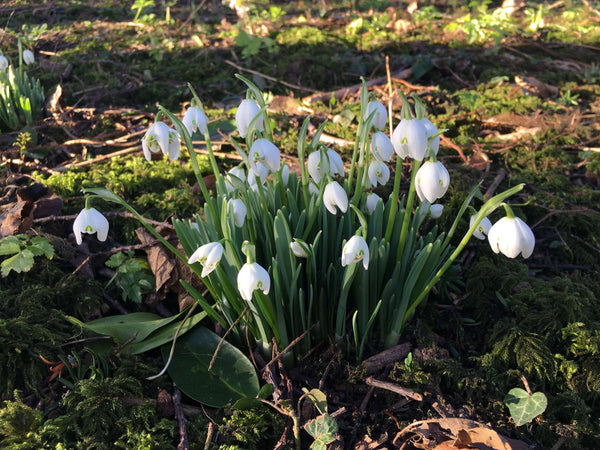
'If Candlemas day be fair and bright, winter will take another flight.
If Candlemas day be foul and rain, winter is gone and won't come again.'
The Christian festival of Candlemas on the 2nd February and the pagan festival of Imbolc (pronounced imulk) on the 1st February are both closely associated with the snowdrop which is reaching its height around now. Both are festivals of light and hope to mark the end of winter and the very beginnings of spring stirrings.
Its Latin name, Galanthus Nivalis means 'milk flower of the snow' and some of its common names include Candlemas Bell, Snow Lily and Fair Maid of February. A German folktale tells of how the snowdrop came to appear so early in the year before all the other bulbs have shown their flowers. According to the tale all the spring bulbs snubbed the snow who was searching for a colour to call its own, except the snowdrop who took pity on the snow and allowed it to share its colour of white, hence from then on the snow protected the snowdrop from the worst of the winter cold and frost.
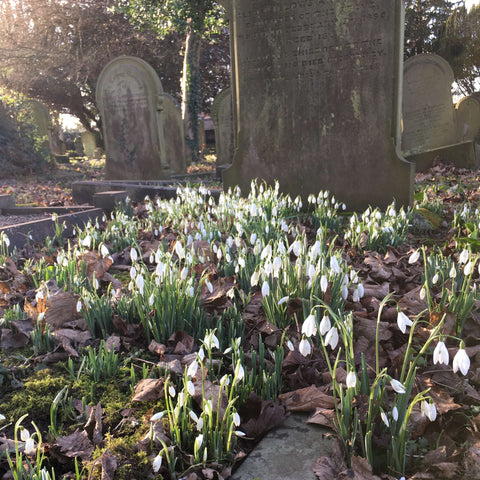 |
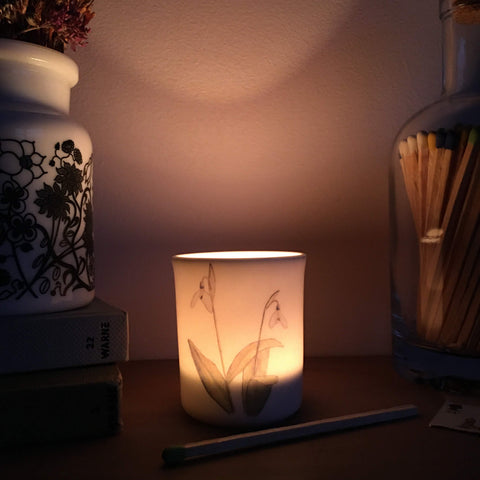 |
Snowdrops are not actually native to Britain but were introduced here in the 15th century by Italian monks. They became popular in gardens with the first wild snowdrop being recorded in Britain in 1778. They like to grow in woodland and dappled shade and if you'd like to go on a snowdrop hunt where you live, I would suggest old cemeteries as being a good bet as they were often planted at the graves of loved ones by the Victorians. This is what led to the superstition against bringing snowdrops into the home as it was thought to lead to a death in the family, except on Candlemas day when they can be brought safely inside.
My snowdrop tealight candle holder is a safe way to bring the symbolism of the snowdrop into your home at this hopeful, yet quiet time of year.
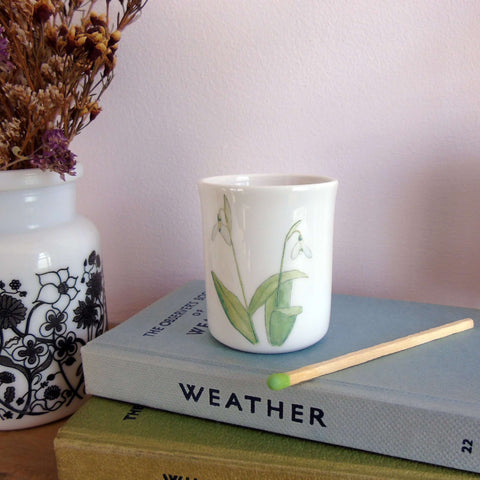 |
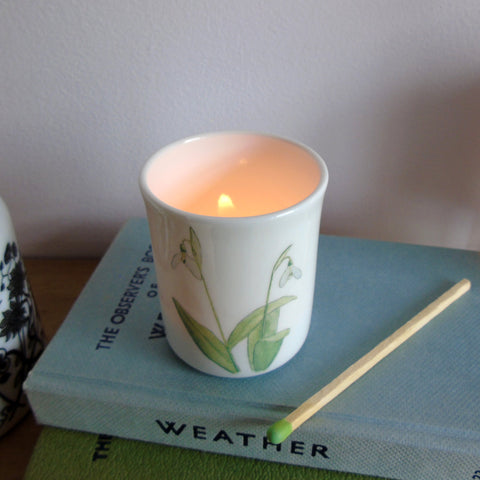 |
